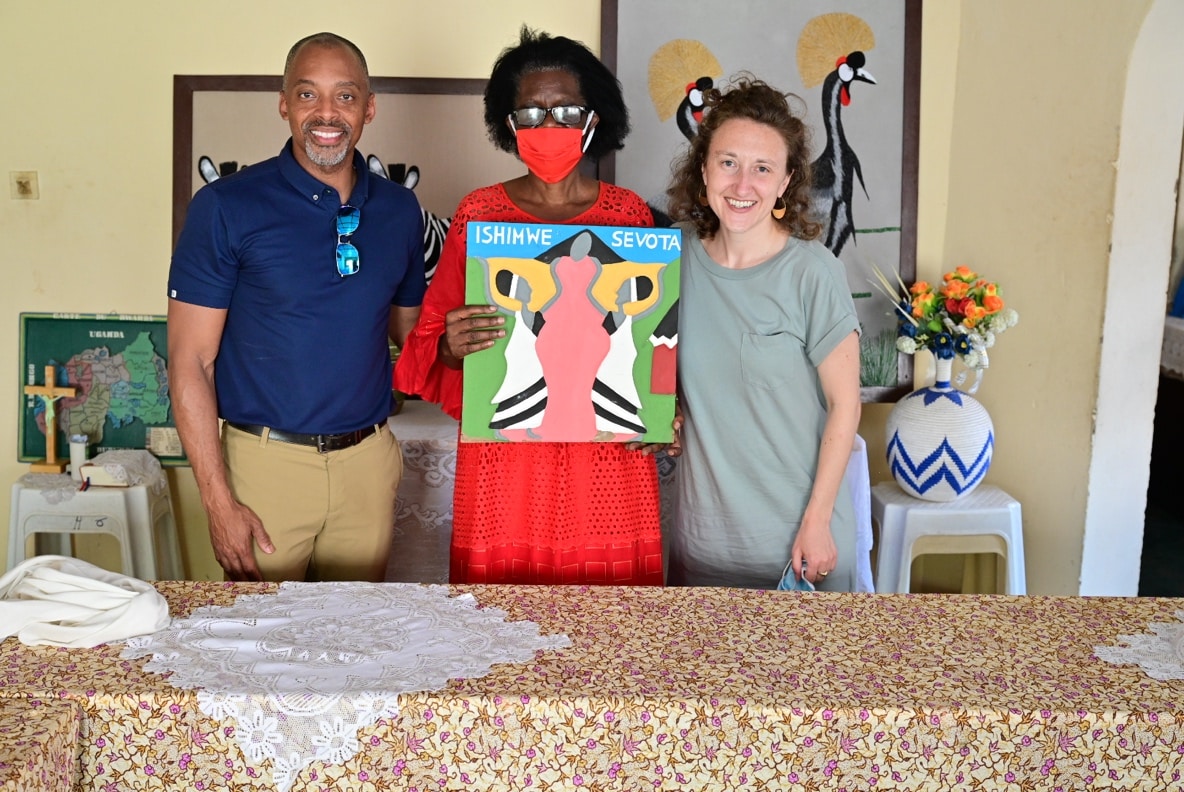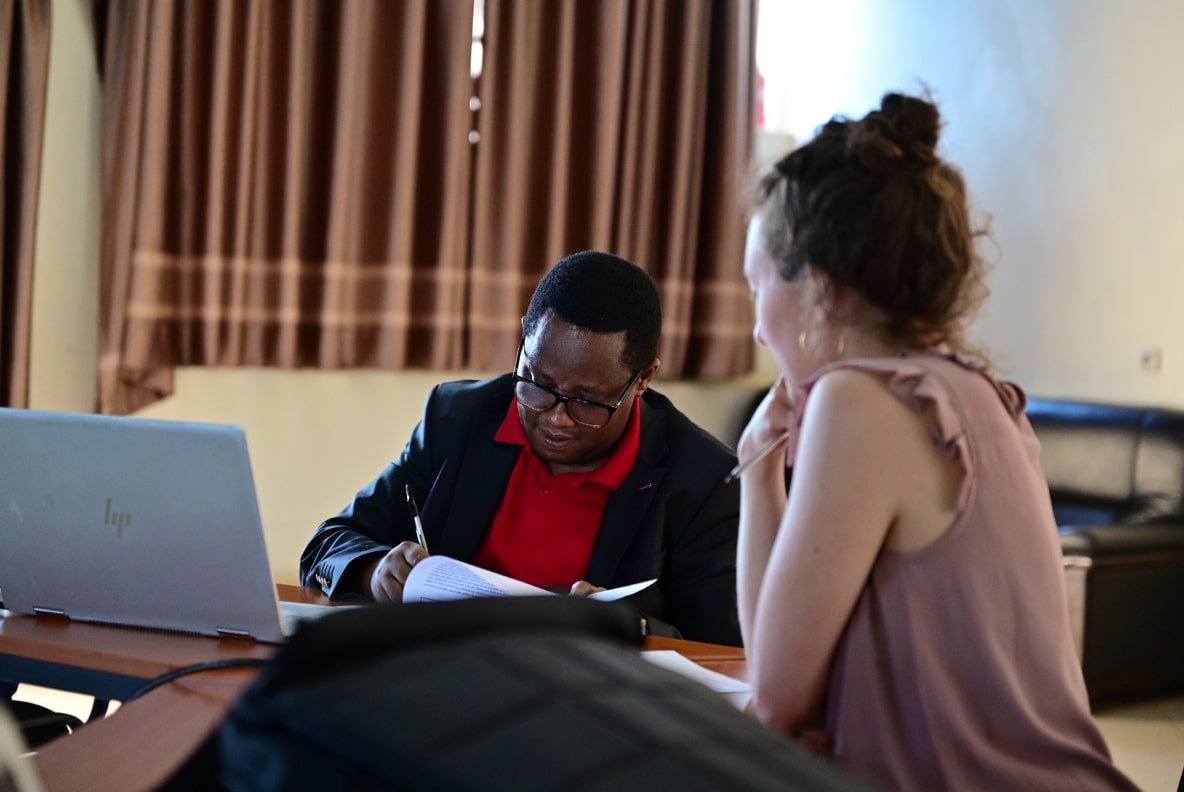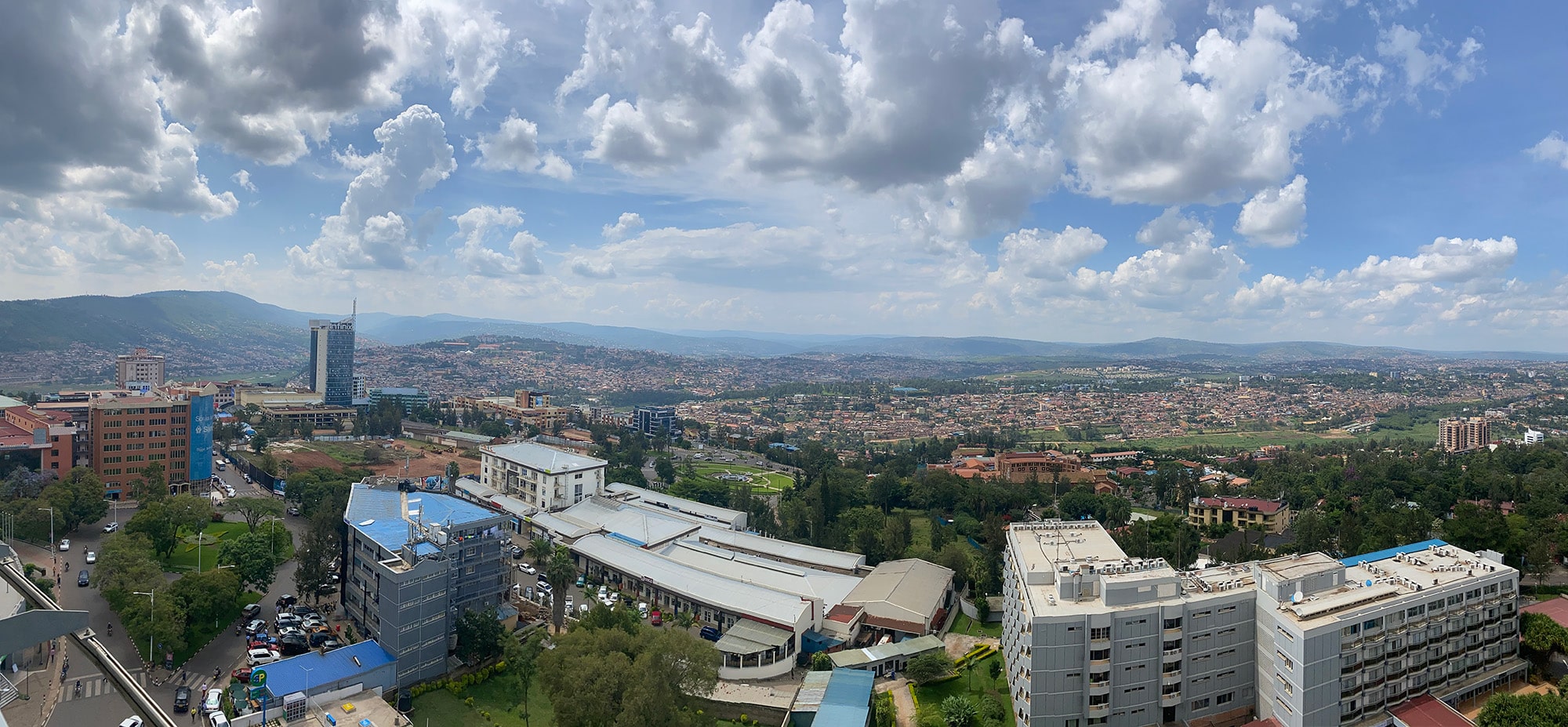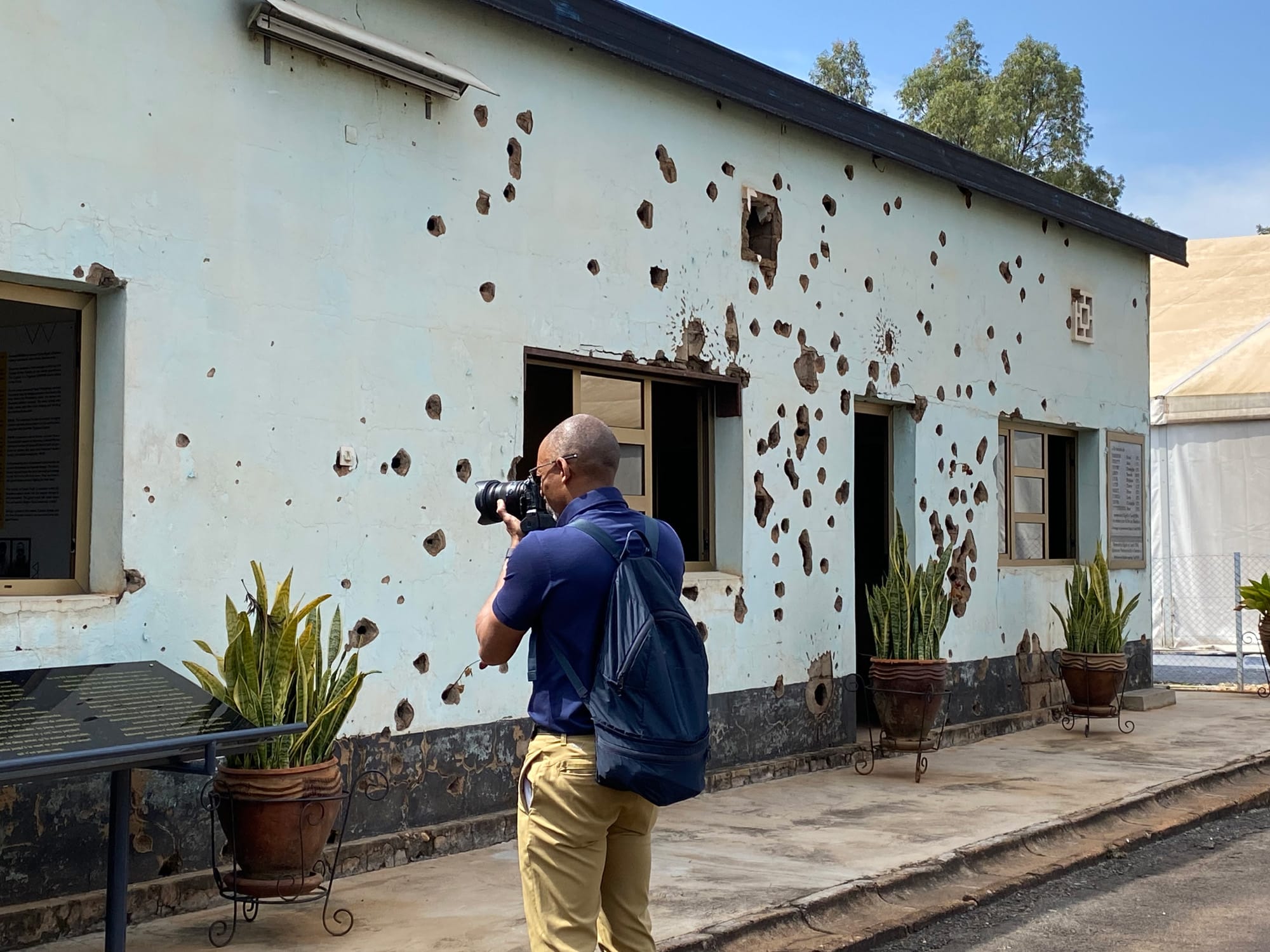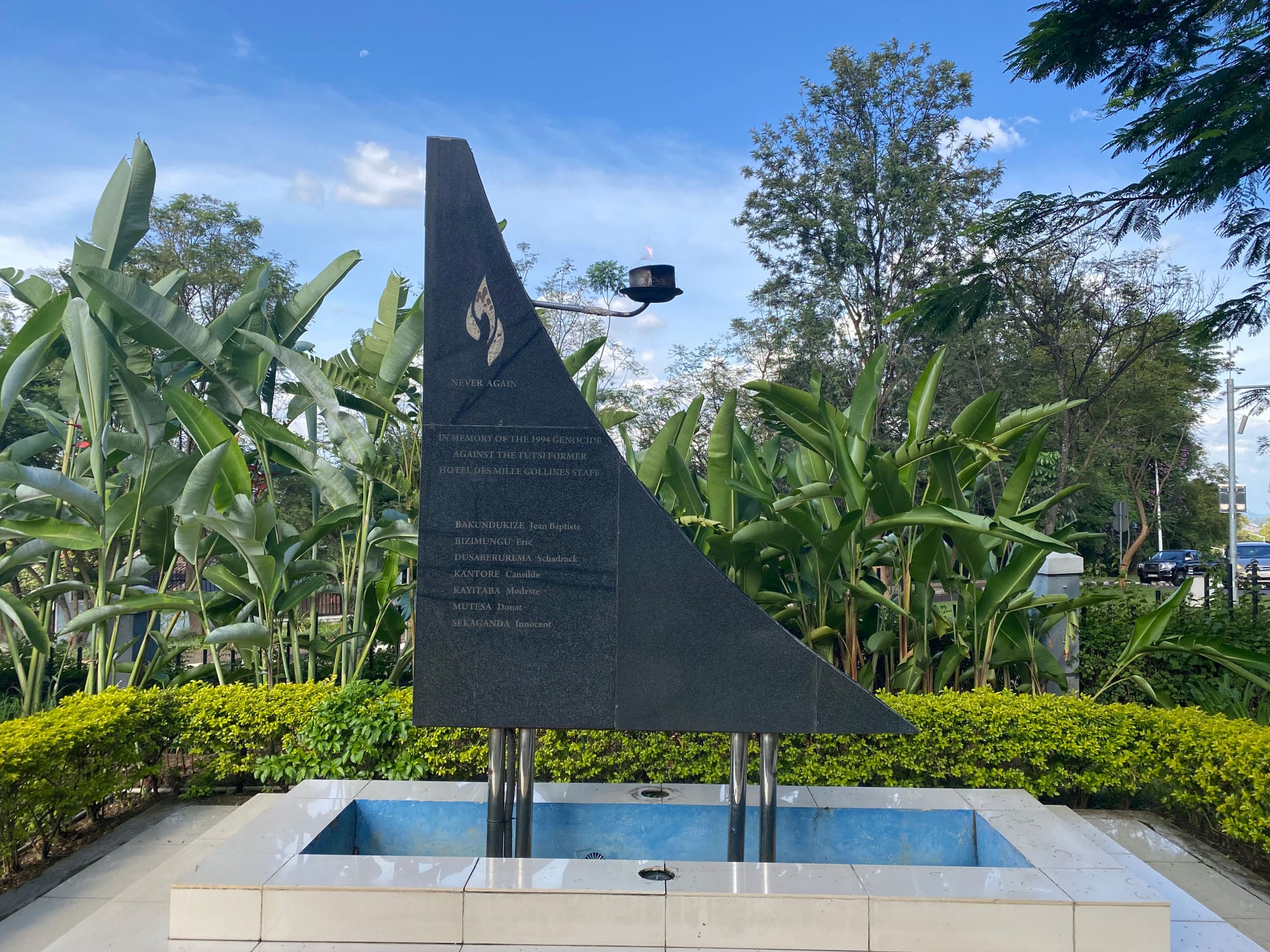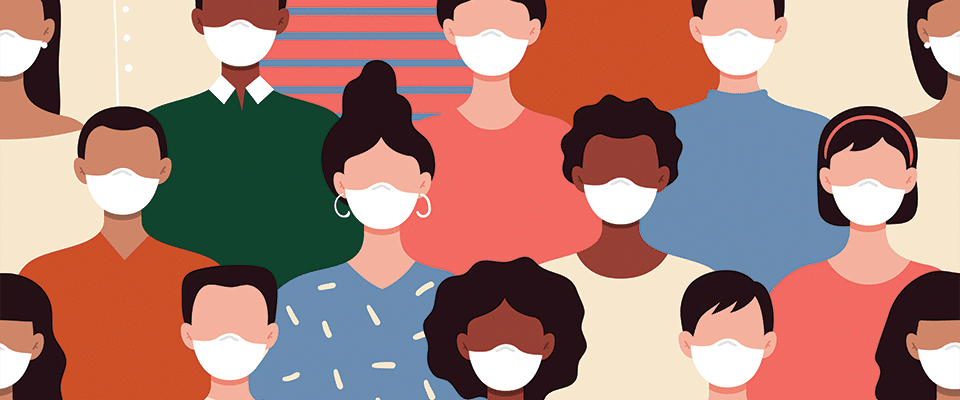
Healthcare Institutions
The IARA project investigates new and existing strategies for antiracist transformation in the healthcare sector. This research focuses on the organizational practices and institutional policy changes that directly address the racial gap in health outcomes. This work aims to support healthcare sector decision-makers and practitioners in achieving lasting and sustainable change at the institutional level.
Why is antiracist research in healthcare needed?
Systemic racism is deeply embedded in U.S. healthcare and economic systems, and it remains pervasive throughout social policies and organizational practices alike.
Finding effective antiracist interventions is as challenging as it is essential. The existing field of research on systemic racism in healthcare is largely focused on showing how racism impacts the social determinants of health and economic well-being of people and populations. Unfortunately, there is very little research on how to correct these inequities.
What do healthcare organizations need right now?
Three months into the COVID-19 pandemic, the world witnessed the murder of George Floyd, sparking a wave of racial justice demonstrations. In response, many healthcare organizations announced new antiracist change goals. Yet, many of these commitments lacked effective strategies and accountability mechanisms. Healthcare organizations need support to identify, implement, and measure antiracist interventions at the institutional level.
What can healthcare organizations gain from IARA’s 2023 report?
Supported by a grant from the Robert Wood Johnson Foundation, IARA conducted a one-year study of existing antiracist interventions in healthcare organizations and a review of authoritative evidence for institutional accountability. The report titled ‘From Words to Action: Institutional Accountability and Transformation‘ was published in March 2023.
IARA’s pioneering case studies identifies five organizational levers necessary to close racial disparities in healthcare outcomes and produce long-term sustainable institutional transformation:
- Buy-in and continued engagement from leadership
- A shared understanding and use of explicit language to define structural racism
- Effective organizational infrastructure
- Clearly defined metrics
- Building internal capacity and professional development
Read the report to learn more about these five must-have’s for institutional change, as well as other recommendations for healthcare organizations striving for antiracist transformation.
Meet the researchers
Key takeaways from the 2023 report
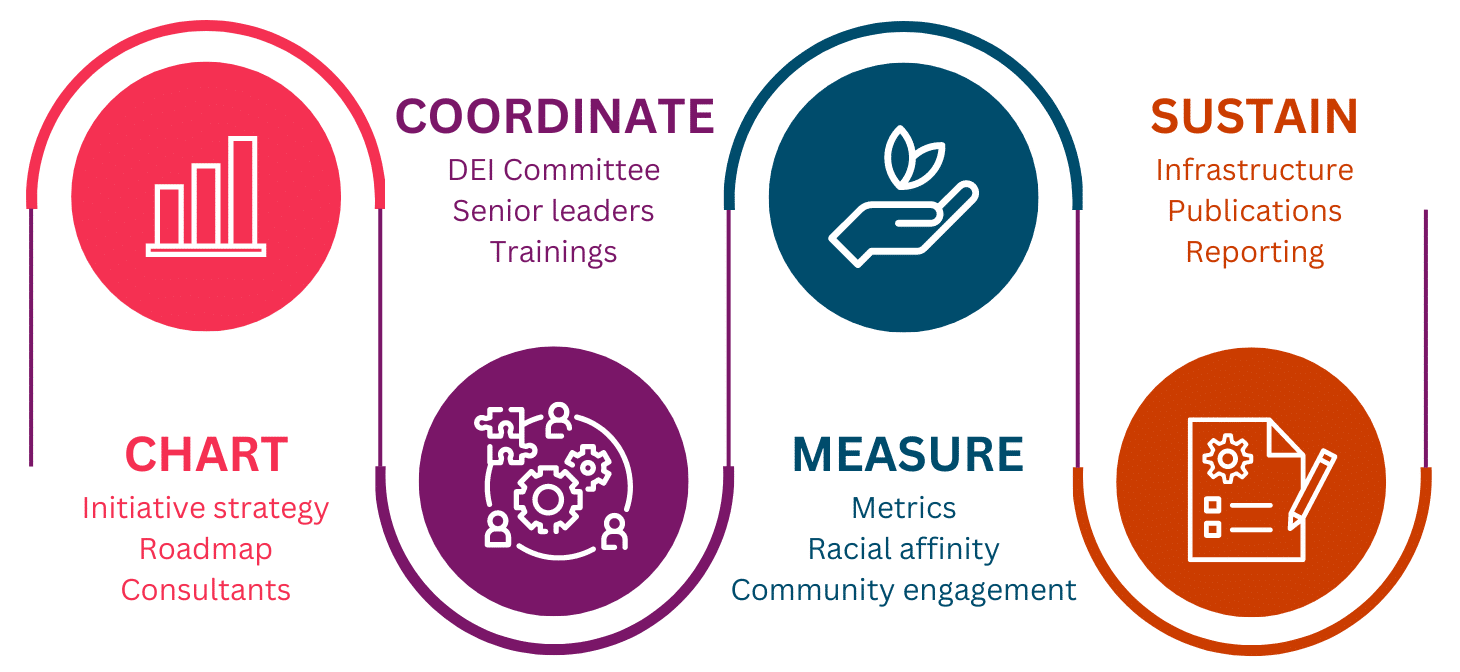
Antiracist accountability compass
Based on the cross-thematic findings from the qualitative data analysis and literature review, IARA proposes this accountability compass as a baseline to guide healthcare organizations.
The compass follows a holistic, four-dimensional path for antiracist organizational change and accountability. Each dimension is composed of three levers from the qualitative grounded theory of the project.
Discussion with Research Fellow Angel C. Rodriguez
In this discussion in the IARA Changemaker series, Dr. Vabren Watts, Director of Equity at Health Affairs sits down with Angel Rodriguez, IARA Research Fellow, and co-author of the forthcoming report Antiracist Institutional Change in American Healthcare Organizations.
Press play for a discussion on the opportunities and obstacles in implementing antiracist change initiatives in healthcare organizations and other key findings from the report.

Related articles on healthcare
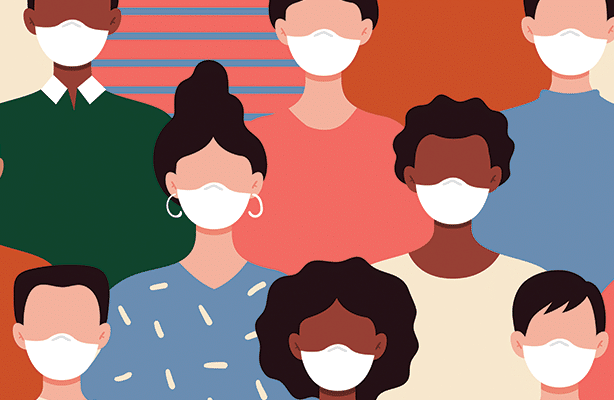
Implementing Anti-Racism Interventions in Healthcare Settings
2021
In the years following the murder of George Floyd, many health organizations declared anti-racism commitments and shifted their core values in an attempt to reform hospital-based interventions to implement antiracist change. To date, however, there remains a gap in providing a systematic review of these efforts to understand which interventions actually worked. In this paper, authors conducted an international systematic review for anti-racist interventions in healthcare to: (1) increase understanding of these efforts for the sector and (2) analyze the anti-racist interventions’ potential to influence policy and patient care.

Association Between Racial Wealth Inequities and Racial Disparities in Longevity Among US Adults and Role of Reparations Payments, 1992 to 2018
2022
This cohort study aims to identify, address and quantify the relationship between longevity ( “all cause mortality”) and wealth as it relates to Black individuals versus white individuals. Furthermore, the study then models how reparations payments to the black community could potentially affect the longevity ( “all cause mortality”) gap between Blacks and whites. By further exploring the direct connection between reparations and health outcomes, the authors attempt to specifically describe the role of monetary resources in determining health inequities across racial groups.

How Structural Racism Works — Racist Policies as a Root Cause of U.S. Racial Health Inequities
2021
Racism is not ahistorical and neither are U.S. health care and public health institutions and practices. Drs. Bailey, Feldman and Bassett argue that structural racism is a legacy of African enslavement and affects both population and individual health. They offer three examples of structural domains that continue to lead to poorer health outcomes for Black Americans: (1) redlining and racialized residential segregation, (2) police violence and the carceral state, and (3) unequal health care.

3 Principles for an Antiracist, Equitable State Response to COVID-19 — and a Stronger Recovery
2021
Historically, at times of economic crises, governmental leaders often cut funding for social programs and create tax cuts for the wealthy, worsening social conditions for marginalized populations, in particular the racial wealth gap. At the peak of the pandemic in 2021, the federal government’s American Rescue Plan unprecedentedly offered state governments the opportunity to address systemically racist policies, the root cause of racial disparities caused by Covid-19. In this paper, the authors provide an antiracist framework for state officials to craft policies that promote equity and racial justice.
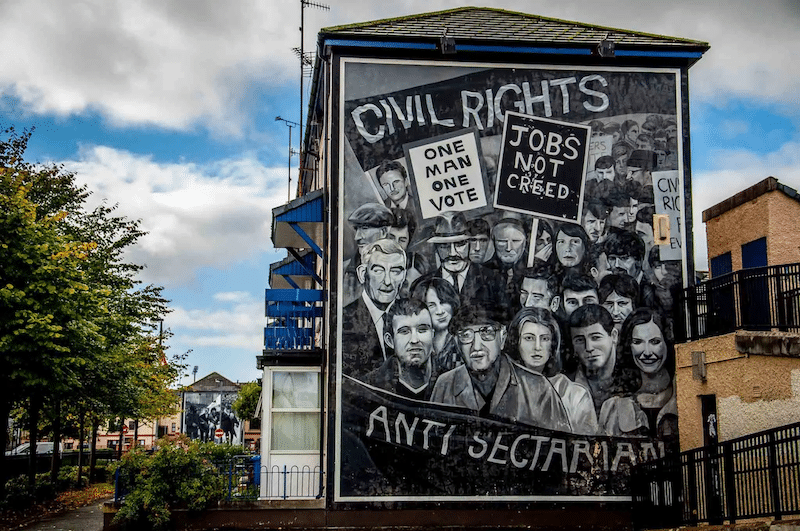
Global Processes of Justice, Truth–Telling and Healing
IARA is currently engaged in a three-year project, supported by the W.K. Kellogg Foundation, to survey international examples of truth-telling and harm repair, including truth commissions and tribunals. The goal is to better understand what accountability looks like for these endeavors and what lessons we can learn going forward.
At IARA, we measure the impact and effectiveness of racial equity organizational transformation, in order to promote organizational capacity building. With funding from the Kellogg Foundation, IARA is assessing global practices of racial healing from inception to implementation and establishing guidelines based on this assessment. The main intent of the project is to create generalizable knowledge about the truth-telling, healing, and accountability processes that have been effective
Specifically, IARA is conducting an overview of historical and current practices in the field of racial healing with a lens on what has been shown to be successful and what the ongoing challenges are. IARA will provide a comprehensive body of knowledge on racial healing combined with recommendations for employing racial healing as a method of community and organizational transformation.
IARA’s goal is to delve into the impact of global historical truth and reconciliation work at the national and community levels. We are documenting components of the model that make it effective. We expect to answer the following key questions:
- What makes the racial healing framework successful?
- Where is there room for improvement?
- What can this learning teach the racial equity/healing field?
- What are the best means for sharing takeaways, resources, and practices with other countries, cities, and counties for scaling their own efforts in antiracist community-driven organizing?
To conduct this work, IARA is mapping organizations and their stakeholders and is using existing documents, publications, evaluation and learning data, community-driven models, and key informant interviews to analyze, understand and assess outcomes and impact. As a result of this project, IARA will produce a final knowledge product and disseminate these findings broadly, contributing to the racial equity space and the understanding of racial healing.
Meet the researchers

Gloria Yayra A. Ayee
Senior Research Fellow
Institutional Antiracism and Accountability Project

Khalil Gibran Muhammad
Director
Institutional Antiracism and Accountability Project

Erica Licht
Research Project Director
Institutional Antiracism and Accountability Project

Private Sector
With its emerging work in the private sector, IARA envisions the establishment of standardized accountability practices and measures for corporate racial equity efforts.
This work seeks to support landscape actors in developing and using metrics to measure the impact of efforts towards equity goals, in response to perspectives of people of color impacted on the ground, and by using public disclosure of data as means for public accountability.
What would an ecosystem of racial justice investments look like?
A healthy, multifaceted ecosystem of racial justice-focused investments would be rooted in historical knowledge, robust racial equity metrics, and antiracist accountability standards. Current organizational diversity initiatives often receive praise based on their aspirational claims, whereas a healthy ecosystem would value their effectiveness. This would best be measured by historical reckoning, racial equity benchmarking, and structural analysis of the organization’s impact on racial justice in society.
Why is antiracist research needed in the private sector?
The field of antiracist policy and practice research is only just beginning. Analysis of racial disparities in all sectors are far more abundant than the analysis of how to dismantle or transform the societal systems, policies, and practices that produce these disparities. Further, professional standards, managerial capacity, and leadership have been hindered by the absence of standardized racial equity measures and accountability practices like those developed for environmental or governance disclosure within robust Environmental, Social and Governance (ESG) models.
How will IARA’s antiracist research contribute to real change?
Accountability frameworks and benchmarks give organizations a clear road map to success and allow stakeholders to hold them to those standards. In order to develop these critical tools, IARA’s researchers will investigate key questions such as:
1 — What policies, processes, reporting and accountability frameworks are currently shaping racial equity within the corporate sector?
2 — How, where, and with what efficacy is the ‘spending’ associated with racial equity efforts reported and measured?
3 — How, where, and over what time period is internally focused equity being tracked and analyzed on an aggregate basis?
4 — Who is at work behind the scenes and what resources are available to encourage corporate sector actors towards better antiracism practices and accountability?
Subscribe to IARA’s newsletter for updates as this project develops.
Meet the researcher

Kerri Ratcliffe
Research Fellow
Institutional Antiracism and Accountability Project
IARA resources on the private sector

Why words aren’t enough from companies claiming to support Black Lives Matter
JULY 7, 2020
Solidarity statements allow companies to invest in good will without investing in substantive change — a practice also known as diversity washing, or reputational laundering. What organization wants to be accused of being pro-racist or complacently silent?
Written by IARA Director Professor Khalil Gibran Muhammad and IARA Research Project Director Erica Licht

Preserving Seats at the Table: White-Dominated Boards
MARCH 18, 2022
This special episode of Untying Knots shares a discussion from the 2021 Truth and Transformation Conference. This panel, titled “Preserving Seats at the Table,” addressed the power of boards to steer equitable change for their companies, and what is at stake if they don’t. The discussion applied a power analysis to organizational hierarchy and power, by taking a closer look at the positions white leaders occupy, and their collusion with resistance to change.
Hosted by IARA Research Project Director Erica Licht and Nikhil Raghuveera

Money Left on the Table: The Economic Argument for Diversity
OCTOBER 15, 2021
From the 2021 Truth and Transformation Conference, the panel “Money Left on the Table” addressed the economic argument for diversity and discussed two central questions: Does this argument even make sense? And why hasn’t everyone already won? Key leaders from various organizational vantage points weighed in and provided insight on how they witness and address resistance to antiracist change.
Related RRAPP summaries on the private sector

The Influence of Board Diversity, Board Diversity Policies and Practices, and Board Inclusion Behaviors on Nonprofit Governance Practice
2023
Published in the Journal of Business Ethics, this study demonstrates that racial, ethnic, gender, and age diversity on a nonprofit’s board affects its governance performance. The authors conclude that organizational leaders must draw on research related to governance effectiveness to materially improve their governing board’s performance. This study also specifically indicates that efforts to enhance board diversity must be paired with meaningful diversity policies and practices and inclusive behaviors to maximize performance improvements.

Best Practices or Best Guesses? Assessing the Efficacy of Corporate Affirmative Action and Diversity Policies
2006
Over the past several decades, there has been an increase in efforts to diversify the American corporate workforce. In this report published in the American Sociological Review, researchers conducted a longitudinal survey of diversity practices in 708 private-sector businesses. The authors conclude that the most effective way to increase the share of white women, Black women, and Black men in management is to implement organizational responsibility for diversity through affirmative action plans, diversity committees, and diversity positions.

Emerging Projects
Put simply, IARA’s research focuses on one question: what is needed for long-term, antiracist institutional change? In order to understand institutional antiracism more broadly, IARA’s research explores specific sectors, as well as the threads that connect them.
Below is an overview of IARA’s emerging projects. These topics are in the early stages of development; they are researched before being launching as full-scale projects. Keep scrolling to explore what we’re working on.
Philanthropy
Focusing on the field of philanthropy, IARA’s primary goal is to understand how foundations confront and transform their relationship to the origins and preservation of their wealth, and as part of their racial justice strategy.
A historical recovery of philanthropy’s relationship to wealth creation and grant making is necessary to understand the sector’s unique role in achieving racial justice goals today. This learning will provide guidance for how foundations can undertake change efforts more effectively and equitably going forward.
Institutional backlash
IARA doesn’t only study what works for advancing racial equity, but also what doesn’t. In its qualitative research, IARA documents case studies of institutional pushout — of Black, Indigenous, and people of color staff and DEI directors — as well as these same actors pushing for organizations to change.
These case studies offer learning for the field to better understand where resources, energy, and strategy are best utilized. Additionally, testimonies and accounts of truth telling by both current and former employees of organizations offer critical data for analysis. IARA’s inter-sectoral approach translates these findings for successful change implementation across a variety of sectors.
Government
IARA recognizes the crucial and unique role that government plays locally and federally in advancing, and challenging, efforts for racial equity. Given the high tide of national and local efforts for truth telling, as well as policy-driven orders, IARA is keen to understand how these developments impact the living conditions of communities of color across indicators of health, education and life experience.
Like its Private Sector Project, IARA sees the relevance of standards for accountability for government-led efforts for racial justice, to ensure both quality as well as direct impact. Without quantitative data, and root cause analysis driving action, many policies labelled as racial justice-driven fall flat of their stated goals.
Meet the researchers

Anil Hurkadli
Research Fellow
Institutional Antiracism and Accountability Project







